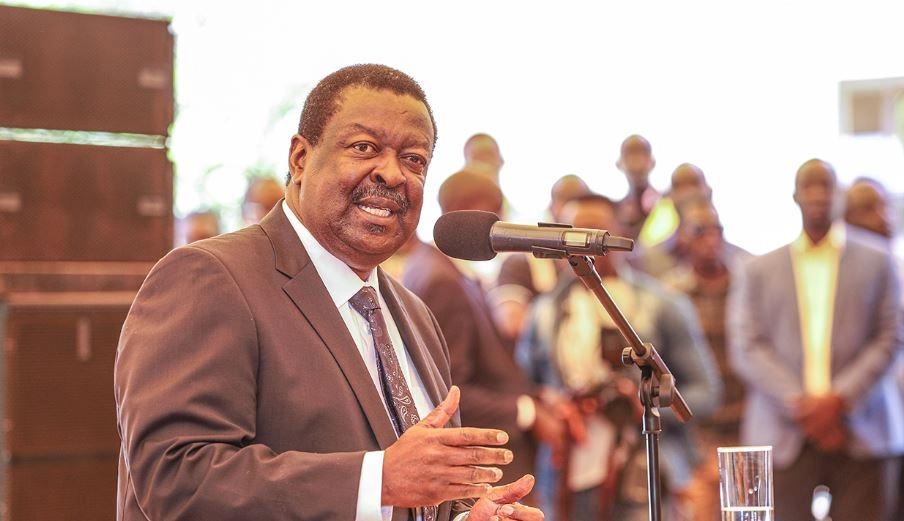 Foreign Affairs Cabinet Secretary Musalia Mudavadi has stood up for how the government handled the June 25 anniversary demos, hitting back at increasing criticism.
Foreign Affairs Cabinet Secretary Musalia Mudavadi has stood up for how the government handled the June 25 anniversary demos, hitting back at increasing criticism.
While addressing diplomatic missions and global groups in Kenya, Mudavadi also blamed some foreign envoys of crossing their line and misrepresenting the situation on the ground
The government of Kenya deeply regrets the loss of life and the injuries sustained by both members of the public and law enforcement officers during the recent events. We extend our sincere condolences to the families of those who tragically lost their lives and express our heartfelt sympathy to all those injured, Mudavadi said.
Mudavadi praised security forces for their professionalism and restraint in the face of extreme provocation during the June 25 protests. He warned that Kenya cannot afford to normalize violence under the guise of peaceful protest.
Their actions prevented further escalation, and we appreciate their dedication to maintaining law and order under challenging circumstances, he stated.
Mudavadi pointed out that what started as a memorial for the 2024 anti-Finance Bill protest victims soon turned to chaos.
Many citizens lost their businesses due to looting, with stock painstakingly acquired through savings or loans destroyed. The vast majority of those affected were medium and small enterprises and citizens of modest mean, Mudavadi said.
Who will compensate them? Who will replace their lost income? he posed. To condone such violence as legitimate protest is certainly not in the spirit of Kenyas national interest.
Mudavadi at the same time said while the law gives key rights and freedoms, noted in several Articles, they should be used right.
Organisers bear the responsibility to ensure demonstrations remain peaceful, he noted.
Challenging those behind the protests, Mudavadi asked, Who were the organisers of the intended peaceful demonstrations? Did they discharge their responsibilities as envisaged under the law?
Mudavadi Tells Diplomats: No Justification for Attacking Police Stations
Mudavadi also questioned the intent behind violent attacks on government facilities during the June 25 protests.
When individuals attack armouries, police stations, or administrative offices, were these acts of a peaceful protest? he asked. What were the objectives of such attacks?
He also defended the Communications Authority of Kenya for stopping live broadcasts of the demonstrations.
This action was proportionate and justifiable, aimed at preventing further incitement while balancing media interests with public safety, he said.
He acknowledged the High Courts later ruling to restore broadcast signals, calling it a demonstration of judicial oversight at work.
While he said he values the diplomacy worlds support for the right to peaceful assembly, Mudavadi stated that parts of the June 25 protests were wrecked by people with hidden, selfish plans, which messed up the real aim.
It is regrettable that these events were marred by incidents of violence, some of which targeted members of the public, including women and small business owners, he said.
Mudavadi described the destruction of infrastructure and the looting of public goods such as subsidised fertiliser as economic sabotage.
Violence has no place in our society, and we cannot hide behind the excuse of protesting to justify unlawful acts, he asserted.
He challenged Kenyans to reflect on the intent behind such protests. When individuals attack law enforcement facilities or destroy private property, is that a form of protest? What was the objective of such actions? These questions demand honest reflection.
Mudavadi also thanked Kenyas international partners for their their help but reminded them the rule of law and respect for constitutional bodies must always stand strong.
The biggest threat to a nations security arises when critical institutions collapse, he warned. Respecting constitutional institutions and adhering to legal processes are non-negotiable to prevent instability.


